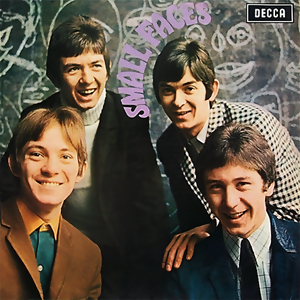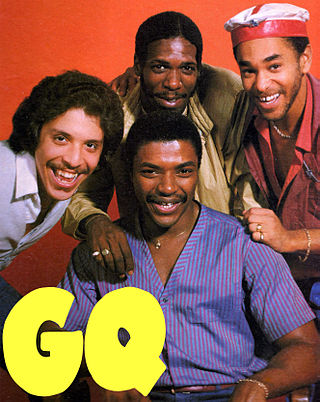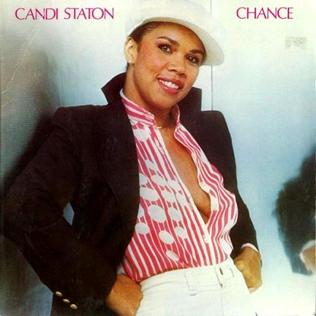
Chicago 19 is the sixteenth studio album by American soft rock band Chicago, released on June 20, 1988. After recording Chicago 18 with David Foster, the band worked primarily with producers Ron Nevison and Chas Sandford for this album. Their Full Moon Records imprint moved to Reprise Records. This is the final album to feature the band's original drummer Danny Seraphine, who was dismissed from the group in 1990.

Two Sides of the Moon is the only solo studio album by the English rock musician Keith Moon, drummer for the Who. It peaked at No. 155 on the Billboard 200. The album title was credited to Ringo Starr. Rather than using the album as a chance to showcase his drumming skill, Moon sang lead vocals on all tracks, and played drums only on three of the tracks, although he played percussion on "Don't Worry Baby". The album features contributions from Ringo Starr, Harry Nilsson, Joe Walsh of the Eagles, Jim Keltner, Bobby Keys, Klaus Voormann, John Sebastian, Flo & Eddie, Spencer Davis, Dick Dale, Suzi Quatro's sister Patti Quatro, Patti's bandmates from Fanny Jean Millington and Nickey Barclay, and future actor Miguel Ferrer.

Ross is the fourteenth studio album by American R&B singer Diana Ross, released on June 9, 1983 by RCA Records. It was Ross' third of six albums released by the label during the decade. It was released shortly before Ross gave a pair of free concerts in New York's Central Park. The album peaked at No. 32 on the US charts, No. 14 on the US R&B charts and No. 44 in the UK. The album's highest international chart position was in Sweden, where it reached No. 7.

Small Faces is the debut album of Small Faces, released in May 1966 by Decca Records. It includes the hit singles "Whatcha Gonna Do About It" and "Sha-La-La-La-Lee". The album was well received by music critics and was popular with the public, rising to number 3 on the UK album chart remaining at the top for several weeks. It also reached number 8 in Finland.

GQ was an American group, formed in The Bronx, New York, primarily noted for its success in funk, R&B, soul music and disco. The core membership of the group commenced playing professionally, under different group names, as of 1968.
"Disco Nights (Rock-Freak)" is a song written by Emanuel LeBlanc, Herb Lane, Keith Crier and Paul Service and performed by American band GQ, from their 1979 debut studio album Disco Nights. The song was produced by Larkin Arnold, Beau Ray and Fleming Jimmy Simpson. The original title is "(Rock-Freaks) Disco / Boogie".

I Prefer the Moonlight is the twentieth studio album by American country music singer Kenny Rogers. It reached #18 on the charts. Though the album only reached #163 in the Billboard 200.It contained three top five singles: the title cut and the grammy-winning duet with Ronnie Milsap, "Make No Mistake, She's Mine" and "The Factory". The album was Rogers' final studio album for RCA Nashville.

Disco Nights is the debut album by American soul/disco group GQ, released in 1979 on the Arista label. The lead single "Disco Nights " was a major crossover hit, topping the R&B chart and peaking at #12 on the pop chart. The follow-up, a cover of Billy Stewart's 1965 classic "I Do Love You", also made the R&B top 5 and the pop top 20. On the back of its hit singles, the album became a big seller. It reached #2 R&B and #13 pop and was certified Platinum by the RIAA.

Two is the second album by American soul/disco group GQ, released in 1980 on the Arista label. It peaked at #9 on the R&B chart and #46 on the pop listing. Unlike its predecessor Disco Nights, no single from this album crossed over to the Billboard Hot 100, but "Sitting in the Park" and "Standing Ovation" reached #9 and #12 respectively on the R&B chart. The former was, like "I Do Love You" from Disco Nights, a cover of a 1965 Billy Stewart recording.
"Bell Boy" is a song recorded by the Who for the 1973 album Quadrophenia and 1979 movie of the same name. It was never released as a single.

"Shake It Up Tonight" is a song by American singer Cheryl Lynn. Since the success of her debut single, "Got to Be Real", the acclaimed R&B-dance track peaked at No. 5 on both the R&B and Hot Dance Club Play charts, and it also scored number 70 on the Billboard pop charts. It failed to chart in the UK.

In the Night is the third studio album by American R&B singer and songwriter Cheryl Lynn, released on Columbia Records in April 1981. The album includes the hit Soul/dance track "Shake It Up Tonight" which reached to number five on both the Soul and Dance charts. In The Night was later certified Gold by the Recording Industry Association of America (RIAA) a month after its release.

Solid is the eleventh studio album recorded by American vocal duo Ashford & Simpson, released in 1984 on the Capitol label. The album features the song "Solid", which became the songwriting duo's biggest hit as performers.

Love Zone is the first solo debut album by R&B/soul singer and backing vocalist Ullanda McCullough, released on Ocean/Ariola Records in 1979. It features the soul cover version of "Want Ads", originally done by the sweet and soulful female group of the '70s with 3 ladies, named, Edna Wright, Shellie Clark and Carolyn Willis, called, Honey Cone and "Stars", written by George McMahon and Leon Pendarvis, plus the whole album, was produced by Bernard Drayton, George McMahon and Leon Pendarvis.

Chance is the eighth album by American soul and gospel singer Candi Staton. Singles released from the album included "When You Wake Up Tomorrow", and the title track, which became a top 20 R&B record. The album peaked at No. 23 on the US R&B Album chart and No. 129 on the Billboard 200.

Major Malfunction is the debut album of American drummer Keith LeBlanc, produced by Fats Comet, and released in 1986 by World Records. The vinyl release plays continuously from beginning to end on sides A and B, while the World and Cleopatra CD releases index each side as a track. This production was ground breaking in 1986 and copied by many.

Raw is the third album by drummer Keith LeBlanc, released in January 1990 by Blanc Records. It was released under the pseudonym Raw and comprises four remixes from LeBlanc's second album Stranger Than Fiction.

"What Is This Thing Called Love?" is a song written by Jimmy Jam and Terry Lewis and recorded by American recording artist Alexander O'Neal. It is the second single from the singer's fourth solo album, All True Man (1991). The song's distinctive backing vocals were performed by Lisa Keith. Following the successful chart performances of the All True Man single "All True Man", "What Is This Thing Called Love?" was released as the album's second single.

Worship and Believe is the sixteenth studio album by Steven Curtis Chapman. Essential Worship alongside Reunion Records released the album on March 4, 2016.

The BBC Sessions is the second live album by the British rock group Small Faces, released on 15 November 1999 on Strange Fruit Records. It is a collection of recordings the group made for the BBC. While mostly being made up of tracks recorded for Saturday Club in 1966, it also features three songs recorded for Top Gear in 1968. Accompanying these tracks are four interviews with Steve Marriott, and one featuring Kenney Jones.


















